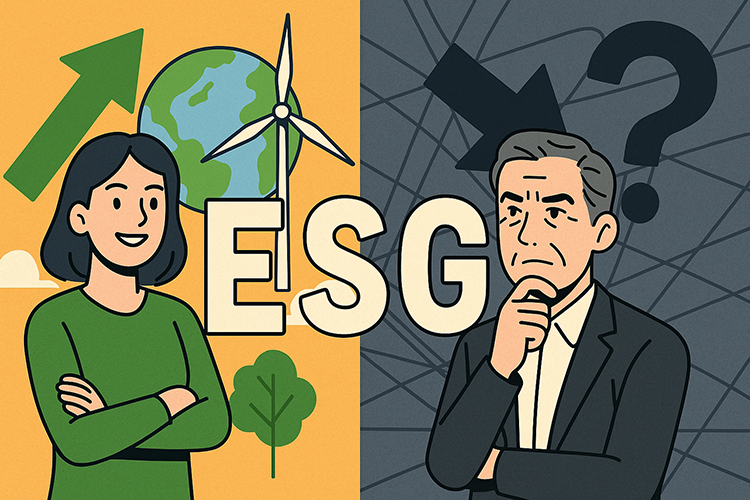2025-10-05
other

Once seen as the universal language of responsible business, the concept of ESG—environmental, social and governance—has entered a moment of reckoning in Europe. Policymakers, investors, and campaigners now find themselves debating whether the framework needs refinement, redefinition, or replacement. At the heart of the discussion is a simple question: has ESG delivered measurable progress for the planet, or has it become another label diluted by marketing and regulation fatigue? European officials warn that the risks of ignoring sustainability remain severe. “Surface water scarcity alone puts almost 15 percent of the euro area’s economic output at risk,” said Frank Elderson of the European Central Bank earlier this year. His remarks underline the central bank’s growing concern that climate and resource shocks could hit growth, financial stability, and long-term competitiveness. Some of Europe’s largest investors agree that ESG cannot be abandoned even amid political pushback. “We are in the middle of an ESG backlash… it impacts the market, it impacts companies, it impacts investors,” observed Carine Smith Ihenacho, governance chief at Norway’s sovereign wealth fund. For her, the challenge is not whether to engage but how to keep the focus on long-term value rather than shifting headlines. Corporate leaders, meanwhile, are calling for a more pragmatic approach. Carine de Boissezon, Chief Impact Officer at EDF, argued that rules can evolve without losing ambition: “Where there is room for smart simplification, let’s tweak the regulation, but we need to stay the course.” Others are less forgiving of what ESG has become. Sir Douglas Flint, chairman of Aberdeen, admits the finance industry “made a huge mistake with extravagant claims about saving the world,” noting that early enthusiasm often turned into a public-relations exercise detached from measurable results. Environmental groups warn that retreating from sustainability commitments now would be costly. “Europe simply cannot afford to dismantle the very laws that protect its people, nature and economy,” said Ester Asin, who leads WWF’s European policy office. Across the continent, regulators are tightening disclosure standards, investors are reassessing portfolios, and firms are learning to translate broad sustainability pledges into concrete targets. Whether ESG survives in its current form—or evolves into a new framework focused more on outcomes than optics—will determine how Europe balances growth and responsibility in the years ahead. Source: comp.

